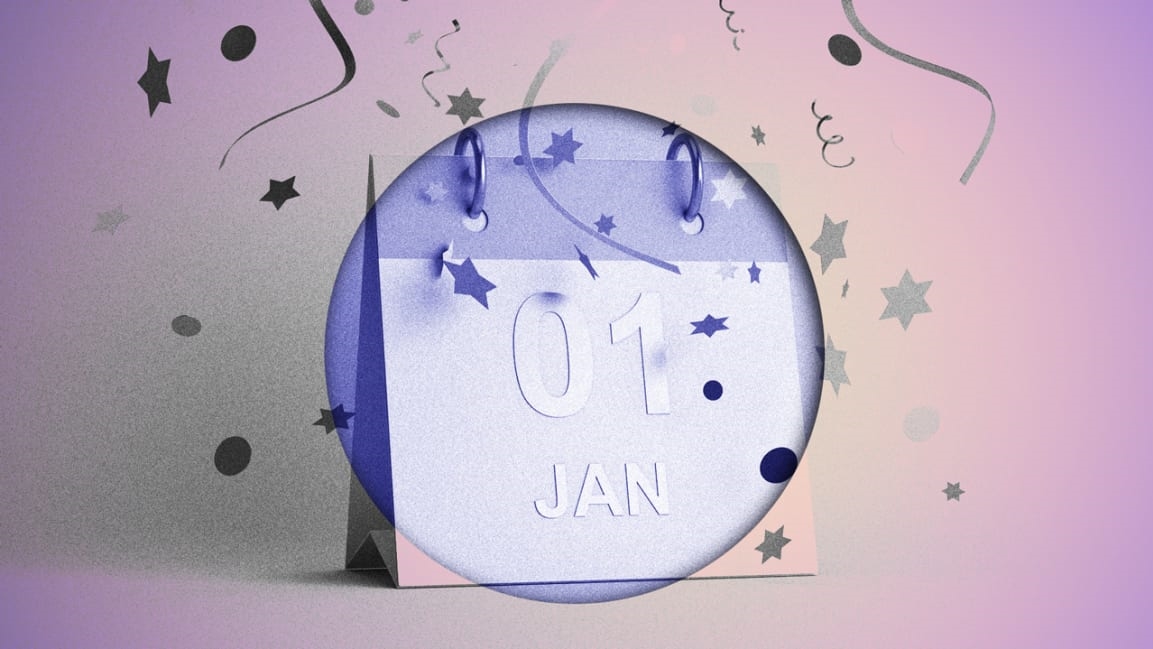7 alternatives to setting resolutions for 2021
As licensed marriage and family therapist Hanna Stensby explains, too often, we create intimidating, momentous resolutions that lack small, attainable accomplishments along the way. This sets us up for failure since few can maintain the same enthusiasm from January 1 until December 31. “The new energy of the first few days of the year can start to wane as life gets in the way, busy schedules start to fill up, and the motivation to stick with an ambitious resolution can fade,” she says. “Resolutions tend to be large changes to habits or lifestyle which take tons of energy to realize.”
So, rather than declaring you’ll become a morning person when you are naturally a night owl, consider a different approach. We spoke with mental health experts on the best alternatives to resolution-setting that boost our confidence, happiness and productivity:
Create a happy and a sad list
One of the key reasons many people don’t reach their resolutions is because they don’t take the time to consider what really matters to them, according to licensed psychologist for Psycom, Julie Kolzet. Rather than hopping on to a trend your friend is following, she recommends creating a list of things that make you happy and things that bum you out.
“This approach can be a launching pad for the creation of a resolution,” she says. “Here we see the creation or formulation of a resolution as a process, and one that requires us to do some self-reflection. This is more a problem-solving approach to New Year’s resolutions.”
Begin a journaling practice
If you’re not someone who enjoys writing, the thought of journaling may feel stressful. However, the trick is to limit how long you scribble, give yourself a break on spelling and grammar, and to figure out the medium that works for you. As psychologist Yvonne Thomas explains, some people benefit from writing in a notebook, while others can turn to the “notes” section of their phone to type it out when they feel flustered. If you’re not sure what to write about, consider a gratitude approach.
“It is too easy to forget, minimize, or overlook the good things when you are feeling stressed, anxious, overwhelmed, and down,” says Thomas. “Writing can help frame your daily outlook to be more positive because you do not just see what’s wrong or missing in your life; rather, you are consciously recognizing what you have that you appreciate and feeling good about those things.”
And when we are in better spirits, we are more motivated and creative, both of which bode well for our professional performance. Make a goal of setting aside a few minutes every day to write.
Commit to a three-minute a day mindfulness practice
Though “mindfulness” has become a catch-all for many things, Stensby says taking three minutes to sit quietly and focus on your breath is an excellent alternative to setting a New Year’s resolution. It can be first thing in the morning, in the middle of the workday, or as a ritual before bed. But start small, with a three-minute session.
“The goal here is to create a practice, rather than an intention,” she says. “So, really carve out those three minutes every day—whatever that looks like. This is going to be much more attainable than setting a goal of 30 minutes of mediation per day from the start.”
If you know yourself and your tendency to procrastinate, Stensby recommends enlisting a meditation/mindfulness accountability buddy. “If you have a meditation buddy who you check in with about weekly goals that you set, it will help you to maintain your progress,” she adds.
Instead of looking ahead, reflect
Though many are eager for 12:01 a.m. on January 21, 2021, to arrive, before we can move forward, it’s vital to process on the past, according to Julia Mercier, the president of The Space For Good, a training and development nonprofit organization. In particular, after this year, she says it’s important to reflect on what we lived through and accomplished.
“Perhaps you found all of the COVID-related adjustments challenging but discovered new ways to cope,” she says. “Or you may have found new reserves of patience you didn’t know you had. Maybe you were a great friend and colleague. All of those achievements, big and small, deserve to be celebrated.”
The benefit of taking a “pause” to recognize the strides we have taken and the goals we have met is that it gives us insight into how we were successful previously. With this information, we can create future-focused resolutions that we know we can achieve.
Choose one new skill for the year
If you ask career expert Wendi Weiner, 2020 has been the year of the pivot, since the pandemic has taught us that economic and social climates can change unexpectedly due to unforeseen circumstances. Everyone has been misplaced or transformed somehow, whether it’s being a full-time remote work employee, or suddenly managing childcare on top of professional duties. Or, it’s battling intense loneliness after a year spent mostly solo.
Whether due to boredom or necessity, we have been forced to learn new skills, both hard and soft, on the fly. As you think about 2021, Weiner suggests forgoing the specific resolution and instead, choose one new skill to improve during your new lap around the sun.
“If your goal is to go from sales representative to sales manager, consider enrolling in free online courses through Coursera or Udemy. Want to learn a new language or a new cooking strategy in the kitchen? Consider taking an online class to increase your knowledge,” she shares. “The key is to do something that will benefit your career or life through ongoing personal and professional development.”
Pick a word or a theme
When a resolution feels overwhelming, it can be more impactful to declare a theme or a word as your focus for the year ahead. As transformational coach and New York Times best-selling author Christy Whitman explains, this can be more digestible since you are aspiring for a feeling and manifestation. As an example, perhaps you decide 2021 is your year for health; Whitman says you can ask yourself these questions:
Your word can be anything—from abundance to clarity to ‘yes,’ or anything else that resonates.
Burn away negativity—literally
Want to forgo resolutions altogether, but you want to do something to signify the release of 2020 and the beginning of 2021? Have a bonfire on New Year’s Eve, Stensby recommends. This begins by writing down anything from the previous year that felt burdensome or distressing, including ideas, ways of thinking, habits, beliefs about yourself, or views about the world. Then, safely create a fire in your fireplace or outside and burn that sucker. “Take a moment to let those burn and let the symbolism sink in,” she says. “This is a powerful way to make space for the new year.”
(23)



